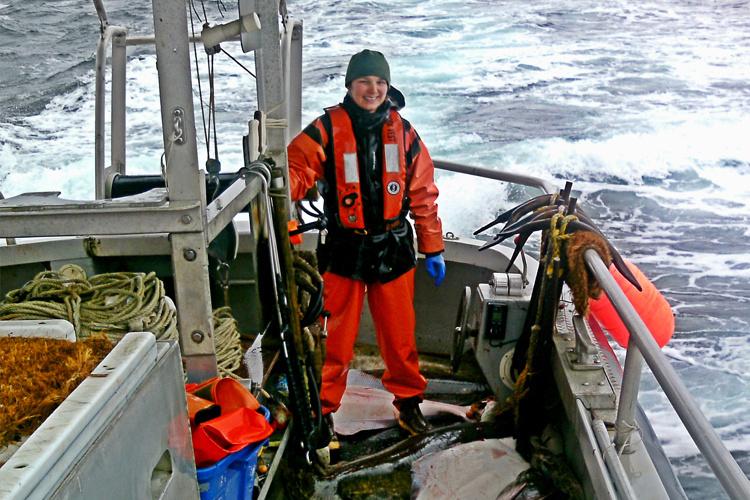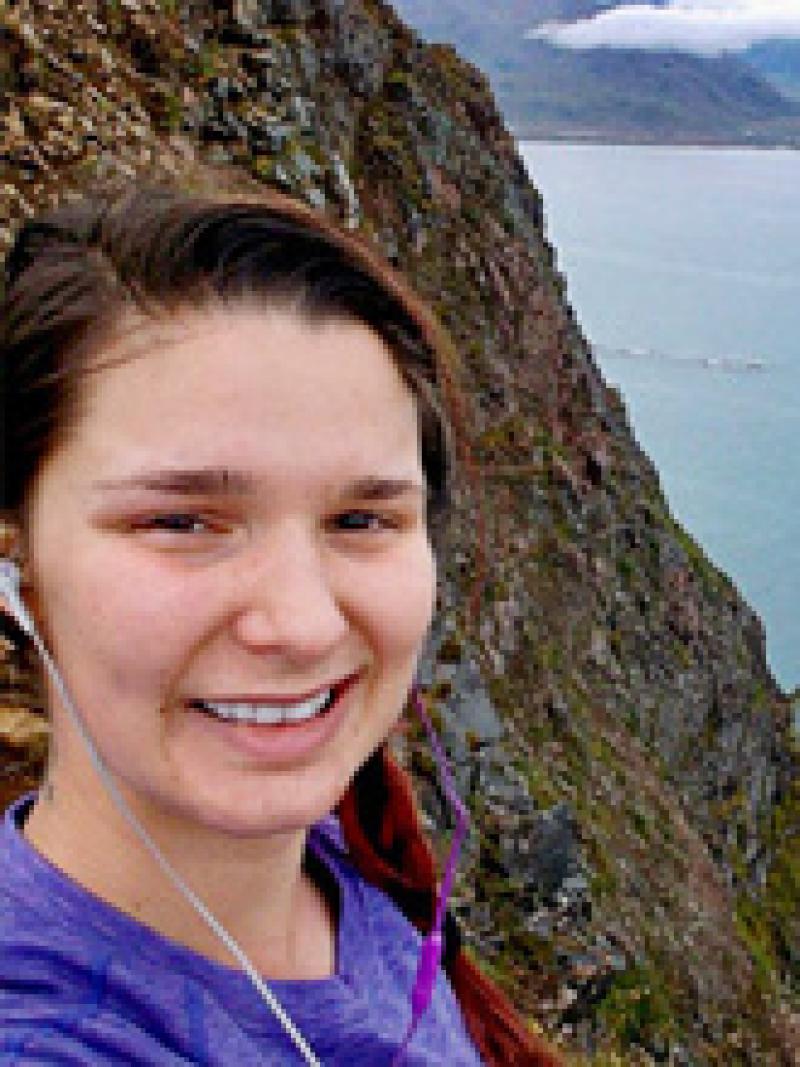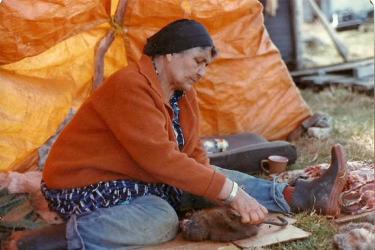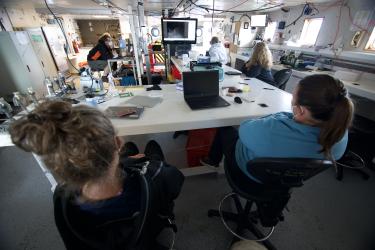
Bobbie Buzzell holding a rockfish.
Spring has sprung in southeast Alaska! While for many in the lower 48 this signifies the first hint of summer, for fishing ports such as Juneau and Sitka this means the opening of IFQ season (Individual Fishing Quota) and rain… rain, rain, rain. However, was I pleasantly surprised when I reached the town of Petersburg on a very sunny and warm day.
My first assignment would be a 44’ longline vessel fishing IFQ halibut. For most observers this is the crème de la crème of observing. One perk is there tends to be less bycatch—those species which are inadvertently caught—which makes both my job and the fishermen’s job easier.
And, as long as fishing is consistently good, halibut fishing is fun! It’s a priceless picture to watch the rollerman shout for help to gaff and hoist a 100+lb beast onto the boat. And there I am 5 feet away watching the adrenaline and furrowed brows struggle to pull the halibut on board. Besides delivering the halibut on ice, the only documentation of their success is a small tally mark on my deck form.
I’m getting ahead of myself, though. I boarded the small fishing vessel on a Tuesday afternoon. I greeted the captain of the boat and was introduced to his two crew; one was his 18-year-old son and another young crewman who was not much older.

After a run through the standard safety check and orientation, we were off to the fishing grounds. Upon embarking, it was clear that there were only two bunks. However, the galley table converted into a bunk that would be shared by the captain and his son, while the other crew member and I took the bunks in the forepeak. It was tight quarters for everyone, but morale seemed high and excitement was in the air.
The captain only expected to be out for a couple of days before delivering back in Petersburg. We steamed south for about six hours. Gear was set in the evening and the plan was to retrieve in the morning, possibly setting more gear depending on fishing. We tied up to a floating dock in a protected cove nearby, as the vessel was only fishing a mile from the beach. The evening was peaceful with the glow of the sun setting in the mountains and especially quiet when the vessel’s engine was turned off for the night. Not a single sound. Thank goodness no one snored.

The first string of the trip is always the most mysterious. My deck forms are set up to expect a variety of circumstances and bycatch. After the first anchor is pulled on board, I am ready and focused on the task at hand. The tallies begin: halibut, halibut, arrowtooth, Pacific cod, halibut, empty hook … This continues until the end of the segment of gear. I am then able to begin weighing the bycatch retained for me. I weigh fish individually since there is no place to hang a scale. The deck is completely uncovered, which normally I would find disappointing, but the weather is great and my tally station isw ell situated out of the way of the crew. The deck begins to bloody as the captain’s son guts and scrapes halibut, a testimony to a decent first set of the trip; but as the day progresses fishing began to slow a bit. This does not damper the crew’s spirits, except for the very seasick son. I have been in his position a dozen times throughout my four years of observing.

Caught halibut on deck.
We return to the anchored float nearby to rest up. The crew will retrieve one more string of gear in the morning, with hopes to finish up the rest of their halibut quota.
As they had hoped, the last string of the trip proves enough to call it quits. I am a little disappointed only because it was such a pleasant experience with the crew. Easy sampling and a crew with such good humor set high expectations for my next observing trip.
I wander down from my hotel the next morning to verify the offload —the official end of the trip. I take a few more minutes to finish logging numbers into the data software back at the hotel before transmitting. At this point I’m off the hook, but I anticipate hearing about a new assignment at any time.



